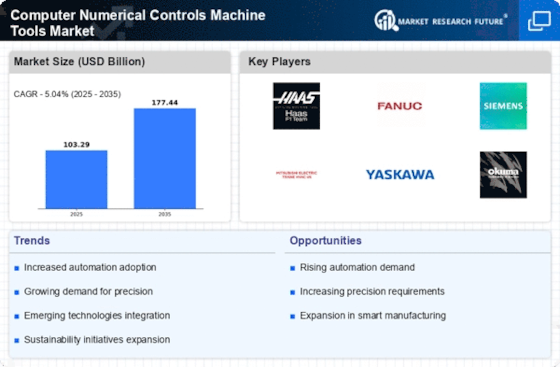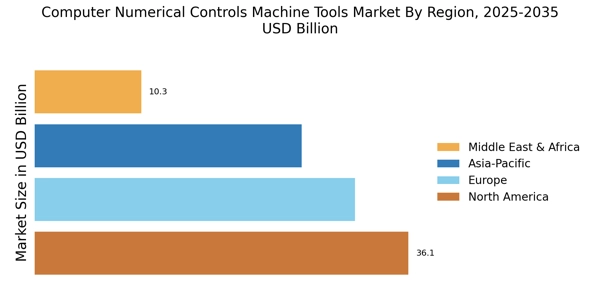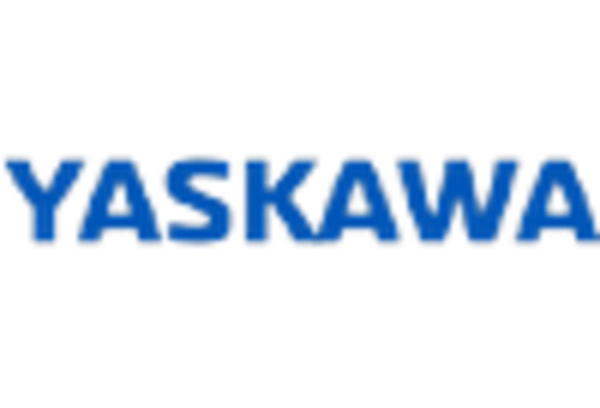Technological Advancements
The Computer Numerical Controls Machine Tools Market is experiencing rapid technological advancements that enhance precision and efficiency. Innovations such as artificial intelligence and machine learning are being integrated into CNC systems, allowing for smarter operations and predictive maintenance. This evolution is likely to reduce downtime and improve productivity, which is crucial in a competitive landscape. According to recent data, the adoption of advanced CNC technologies is projected to increase by approximately 15% annually, indicating a robust growth trajectory. As manufacturers seek to optimize their processes, the demand for cutting-edge CNC machine tools is expected to rise, further propelling the market forward.
Increased Focus on Customization
Customization is becoming increasingly important in the Computer Numerical Controls Machine Tools Market. As consumer preferences shift towards personalized products, manufacturers are compelled to adopt CNC machine tools that offer flexibility and adaptability. This trend is particularly evident in industries such as consumer electronics and fashion, where tailored solutions are in high demand. Market analysis indicates that the customization segment is expected to grow by 6% annually, reflecting the need for CNC technologies that can accommodate diverse production requirements. This shift towards customization is likely to drive innovation and investment in CNC machine tools.
Growth of the Manufacturing Sector
The expansion of the manufacturing sector plays a pivotal role in the Computer Numerical Controls Machine Tools Market. As economies recover and industrial activities ramp up, the need for efficient and reliable manufacturing processes becomes paramount. The manufacturing sector is projected to grow at a rate of 4% annually, which will likely increase the demand for CNC machine tools. This growth is driven by the need for automation and efficiency in production lines. Consequently, manufacturers are investing in CNC technologies to enhance their operational capabilities, thereby contributing to the overall market expansion.
Sustainability and Energy Efficiency
Sustainability initiatives are gaining traction within the Computer Numerical Controls Machine Tools Market. Manufacturers are increasingly prioritizing energy-efficient CNC machine tools to reduce their environmental footprint. The push for sustainable practices is not only driven by regulatory requirements but also by consumer demand for eco-friendly products. Data suggests that the market for energy-efficient CNC machines is expected to grow by 7% annually, as companies seek to align their operations with sustainability goals. This focus on energy efficiency is likely to influence purchasing decisions, thereby shaping the future landscape of the CNC machine tools market.
Rising Demand for Precision Engineering
The demand for precision engineering is a key driver in the Computer Numerical Controls Machine Tools Market. Industries such as aerospace, automotive, and medical devices require high levels of accuracy in their manufacturing processes. The increasing complexity of components necessitates the use of advanced CNC machine tools that can deliver the required precision. Market data suggests that the aerospace sector alone is expected to grow by 5% annually, driving the need for sophisticated CNC solutions. As companies strive to meet stringent quality standards, the reliance on CNC technology is likely to intensify, thereby boosting market growth.

















